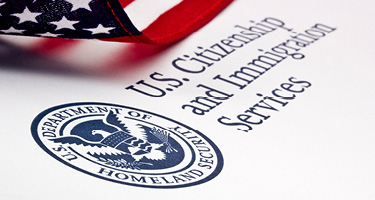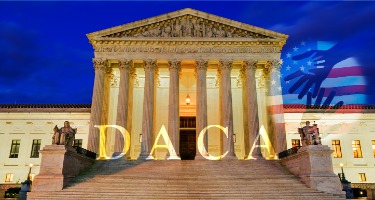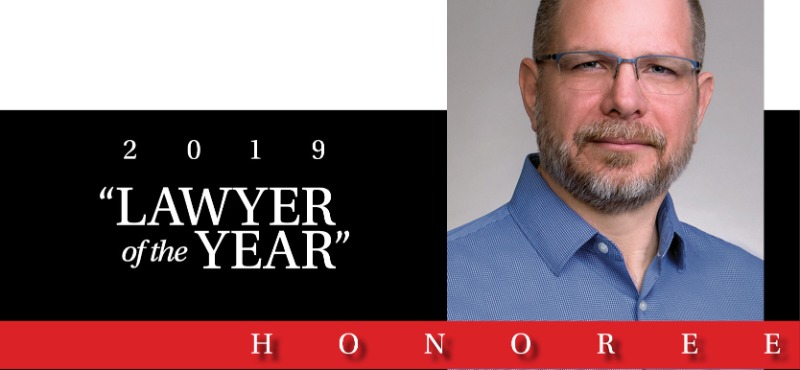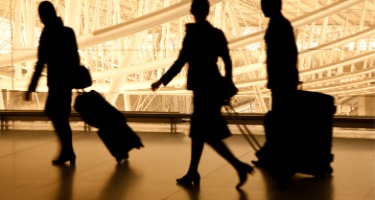This guide is intended to serve as a resource for management and human resources representatives when making decisions and advising employees/management on travel and immigration-related concerns. The rules regarding immigration requirements are very complex and always changing. Therefore, the key to maintaining immigration compliance for a viable workforce is to be proactive in planning and issue spotting when employees are traveling or being evaluated for hire, promotion, or transfer to a different business area or worksite.
General Background
Under U.S. immigration law with the exception of Canadians, all foreign nationals seeking to enter the U.S. to perform work are required to obtain a work visa (regardless of the duration of the trip). If a foreign national is traveling to the U.S. as a tourist or business visitor so long as s/he will not be performing work, nationals of some countries will be able to take advantage of the Visa Waiver Program (sometimes referred to as ESTA) while others are required to obtain a B-1/B-2 visitor visa.
The key concern for human resources representatives is to identify when a foreign national’s proposed activities may constitute “work” (which is governed by the nature of activities to be performed, not by duration of stay). Under U.S. law, business visitors are limited to performing the following types of non-work activities:
- engaging in commercial transactions, which do not involve gainful employment in the United States (such as a merchant who takes orders for goods manufactured abroad);
- negotiating contracts;
- consulting with business associates;
- litigating;
- participating in scientific, educational, professional, or business conventions, conferences, or seminars;
- undertaking independent research; or
- installing, servicing, or repairing commercial or industrial equipment or machinery purchased from a company outside the United States or training U.S. workers to perform such services. However, in such cases, the contract of sale must specifically require the seller to provide such services or training, and the foreign national must possess specialized knowledge essential to the seller’s contractual obligation to perform the services or training and must receive no remuneration from a U.S. source.
Any activities that exceed the scope of those included on this list could require the foreign national to secure a work visa (regardless of the duration of stay).
Please also note that we understand that the parameters of the Business Visitor Program may be revisited by the new administration within the coming weeks/months, so it is important to confer with immigration counsel to verify that there have been no changes or additional restrictions imposed on the activities permitted for business visitors when agreeing to a specific assignment that might require travel to/work in another country.
See below for more information on the Visa Waiver Program and the most common types of visas.
General Work Visa Application Process
With some exceptions, if an employee requires a work visa the general process for securing the work visa would involve the following steps:
- Obtain an approval notice from U.S. Citizenship and Immigration Services (USCIS).
- Apply for a visa at a consular post outside of the U.S.
- Upon arrival in the U.S., present the visa and approval notice to a U.S. Customs and Border Protection (CBP) officer at the port of entry.
- Following admission to the U.S., access the online Form I-94 Arrival/Departure System (https://i94.cbp.dhs.gov/) and print out Form I-94 (which specifies classification of admission and duration of authorized stay).
Canadians are visa-exempt, and in most cases can bypass the second step, but must apply for admission to the U.S. at a port of entry using a process similar to the visa application.
General Screening Procedures at U.S. Ports of Entry
CBP screens travelers using a multi-step process. First, before the flight departs, CBP officers check passenger records against security databases for possible concerns. When the flight arrives, travelers speak to a first-line CBP officer at a window whose responsibility it is to confirm their identity, the validity of travel documents, the purpose and duration of the visit, and the appropriateness of the individual’s immigration clearances based on the purpose and duration of the visit. If the system has identified any security concerns or if the officer has additional concerns based on the traveler’s responses/documents, the officer will ask the individual to report to CBP’s Secondary Inspection Unit. There, another CBP officer will ask more questions and perform a more in-depth inspection of the traveler’s documents. Please note that any travelers who report that they have lost a passport will be subject to additional screening by the Secondary Inspection Unit.
It is important to note that the law imposes serious consequences on the traveler if CBP believes that s/he has made any material misrepresentations with respect to the purpose/duration of his/her visit. CBP has the discretion to open and examine phones, laptops, emails, business cards, etc. to confirm that the accuracy of the individual’s statements. If CBP believes that the individual has made a material misrepresentation, s/he could be denied entry to the U.S. and potentially barred from returning to the U.S. for up to five years. U.S. enforcement agencies have also been active in investigating/fining companies who they believe have been complicit in misrepresentation. Recently, a major IT provider, Infosys, paid $34 million to settle allegations of systemic visa fraud and abuse of immigration processes, including the B visa program. The government is very committed to investigating abuses in this area.
-------------------
Neil S. Dornbaum is a member of the firm of Dornbaum & Peregoy, LLC, which has offices in Millburn and Newark, New Jersey. His practice is limited to immigration and nationality law, with special emphasis on corporate and employment based immigration matters. He has been chair of the NJ Chapter of the American Immigration Lawyers Association (AILA); chair of the NJ State Bar Association’s immigration nationality and Americanism committee; chair of the American Bar Association’s general practice section’s immigration committee; and served on AILA’s board of governors and as a commissioner and member of advisory committee of the ABA “Commission on Immigration.” He can be reached at Dornbaum@immigrationlawyersnj.com.
Kathleen M. Peregoy is a partner in the firm of Dornbaum & Peregoy, LLC, in Newark, New Jersey. She has been practicing corporate/commercial/transactional law for more than 30 years. She is a past-chair of the NJ State Bar Association’s immigration nationality and Americanism committee; member of the NJ State Bar Association’s pipeline diversity committee; member of the NJ State Bar Foundation’s co-sponsorship oversight committee; and member of the legal studies advisory board at Berkeley College, as well as an adjunct professor of international business law. She can be reached at Peregoy@immigrationlawyersnj.com.
































